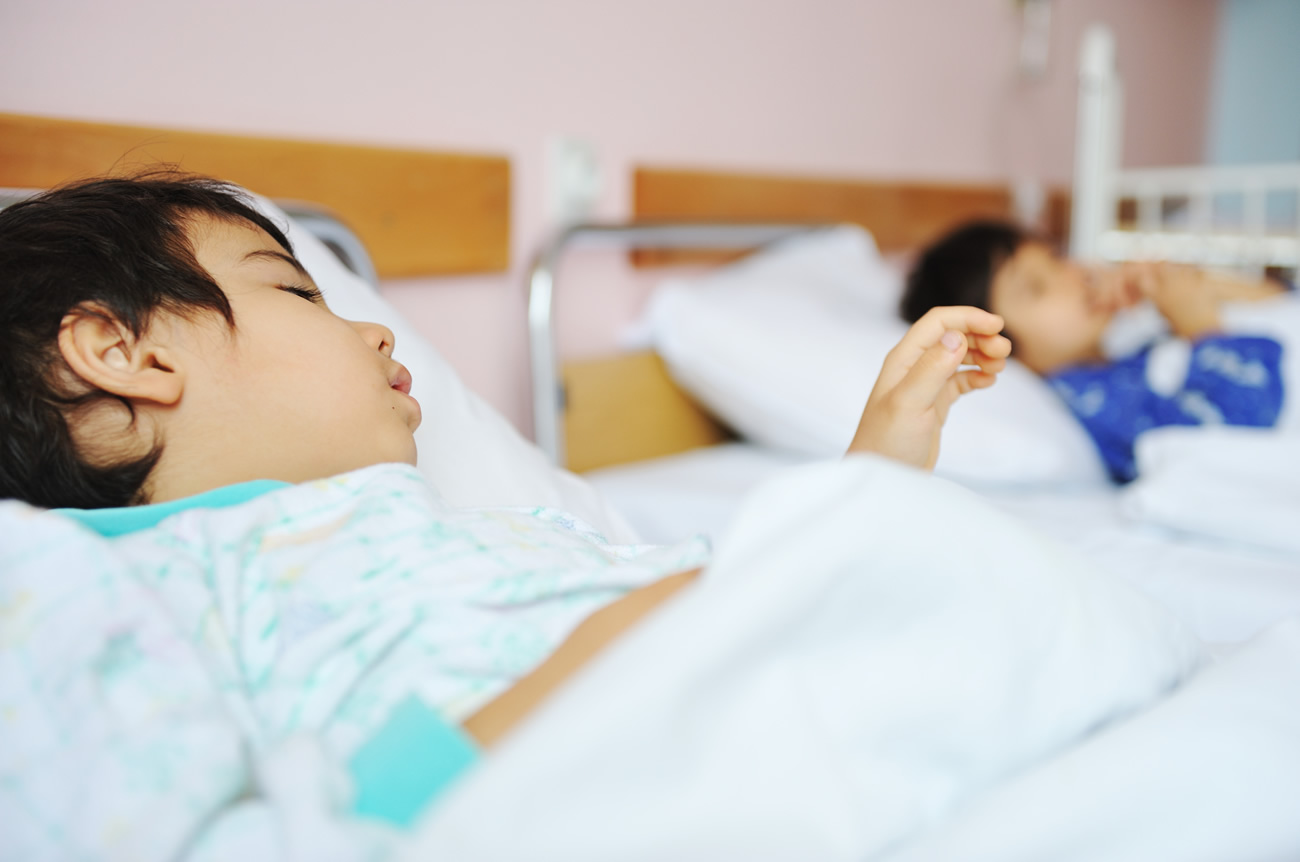
- 0203 903 7866
The Portland Hospital for Women and Children,
205-209 Great Portland Street, London W1W 5AH - Request Appointment
 GP Referral
GP Referral

Noisy breathing can come in several different forms. The kind of noise your child makes when breathing can help to identify the cause of the problem.
A whistling noise in the nose is often causing by a blocked nostril and it will go away once the nose is blown or cleared out. A blocked nose is particularly likely to cause noisy breathing in young babies, as they always breathe out of their noses and not their mouths. Their narrower airways are also more easily blocked, which can make them whistle with just a small blockage. Wheezing or whistling lower in the chest can be caused by blockages in the lower airways and it can be a sign of an infection, an allergy or a condition like asthma.

Other kinds of noises can also happen, often along with a cough. A hoarse, harsh noise that happens as a young child or baby breathes out is known as stridor. When it happens with a barking cough, the cause is most likely croup. A whooping noise that comes as your child breathes in after a fit of coughing is a characteristic symptom of whooping cough. Your doctor may also be able to hear additional sounds when listening with a stethoscope, such as a crackling noise in the lungs, which can be a sign of pneumonia.
Some kinds of noisy breathing only happen occasionally. Noisy breathing at night could be caused by a condition called sleep apnoea, which causes the throat to temporarily relax and close up. Wheezing due to an allergy happens only after exposure to a particular trigger. Asthma can also be triggered by certain things, including exercise and cold air.
Noisy breathing is usually caused by some kind of blockage or narrowing of the airways. The problem could occur anywhere from the nostrils right down to the bronchioles that carry air into your lungs. It could be caused by an infection that is causing inflammation and increased mucus production. It could also be a result of swelling due to an allergy or a respiratory condition like asthma or cystic fibrosis. Sometimes the cause is a physical problem with the airways. There may be a blockage such as a deviated septum, which could require treatment. Sometimes the noise is simply caused by a baby having a slightly soft or floppy windpipe, which will often resolve itself as they get older. Noisy breathing that is present from birth and does not go away must be investigated by a pediatrician respiratory specialist.
In some cases, the cause could even be something as simple as heavy breathing because your child has been running around or has become overheated. The problem should then go away quickly once he or she has rested or been made more comfortable. If the noisy breathing persists, or happens very frequently, you can seek advice from your doctor to find out if the problem could be caused by a condition like asthma.
Some of the noises that babies and children make when they breathe are perfectly normal. It can take some time to get used to the way your newborn breathes when you are a first time parent, but you can always ask your health visitor, doctor, or a more experienced parent for advice if you're worried. Other kinds of noisy breathing can be signs of infection, allergies, asthma, or other problems that require treatment. A minor infection can usually be treated at home, but if your child has severe symptoms like a very high fever, you should seek medical advice. Other signs to look out for are very rapid breathing or signs that your child is struggling to breathe, such as grunting, flaring nostrils, or larger than normal movements of the chest. You should get help immediately if your child is having trouble breathing, you notice blueness around the mouth and lips, or they are unresponsive.
Listening to your child's breathing can help to diagnose the cause of noisy breathing. The doctor may also ask about when you first noticed the problem, whether there are any other symptoms, and your child's and family's medical history. Tests such as blood or sputum tests, breathing test, or scans may be needed to check for any infections or for signs of conditions like asthma.
Once the cause of noisy breathing has been identified, your doctor can advise on treatment. Your child might need antibiotics for a bacterial infection or a few days in hospital to help them to recover from a severe case of pneumonia. Longer term treatment may be needed if your child is diagnosed with a respiratory condition like asthma. In some cases, surgery may be recommended to remove blockages caused by problems with the airways themselves, such as a deviated septum.